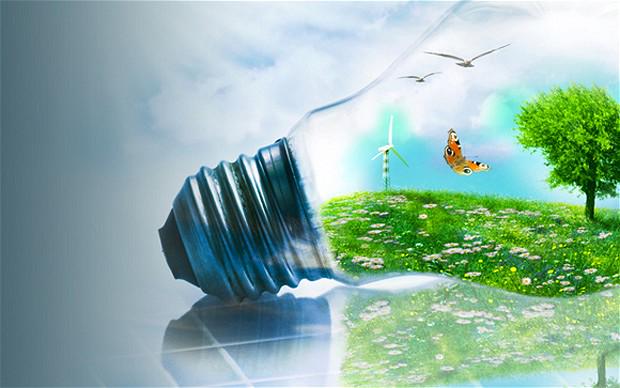There are many advantages of working from home; a better work/life balance, a less stressful environment, and no long commute to the office is just the beginning.
The Australian Bureau of Statistics reported in 2013 that approximately one in 12 employees work from home (at least sometimes), which is a pretty significant chunk of the workforce.
However like most things, there are pros and cons. Although you may be saving money on fuel, you may be accumulating a higher energy bill than usual.
To work more environmentally-friendly and minimize your energy bills as best possible, here are the top green tips:
Invest in energy saving appliances
Purchasing energy-efficient equipment such as monitors and computers that follow the Minimum Energy Performance Standards (MEPS), LED lightbulbs, and printers that have no or only low standby energy usage are simple changes that can make a difference. Using fans rather than the air conditioner when it’s hot is also a good idea.
Warm yourself before warming the room
Winter can produce some of the highest energy bills, as using a ducted heater to warm up uses masses of electricity. Dressing warmly and keeping moving is a very simple way to save money. As you are working from home there really is no excuse to not dress ridiculously if the weather really is icy; snuggle up in your dressing gown with some tea and get to work.
Use a power board
Buy a power board to connect all the technology that is used for work. Connect the main device (generally the computer) into the ‘master socket’ and then the other devices can be connected via the ‘slave sockets’. This way, when the power to the computer is shut off, the other devices subsequently shut down which ensures that no unnecessary power is being wasted. Electrical equipment still consumes energy when it is plugged into the wall, so a power board makes eliminating energy usage a flick of one switch.
Test your cooking skills
Take advantage of being home all day and try using a slow cooker to cook dinner while you are working-not only will you be left with a tender delicious meal but they use a lot less energy than conventional ovens.
Opt for a laptop
Compared to traditional desktop computers, laptops use up to 80 per cent less energy due to being designed to use without constant power connection. These days laptops are relatively affordable and come in an endless variety of types, and being portable may also be convenient as they can travel where ever you do.
Only heat/cool where you are working
If you really have to use a heater or air conditioner, make sure you only use it in your home office room. Many measures can be taken to ensure your energy use is being contained to a single room such as shutting all doors, blinds, curtains and drafter stoppers. This also applies to lights- only turn on the lights you specifically need.
Do your research
It is possible you may be able to claim a certain percentage of your energy bill as a work-related expense. Knowing your entitlements and doing some research may prove to be a huge help.
Photo courtesy of Joshua Eaves



